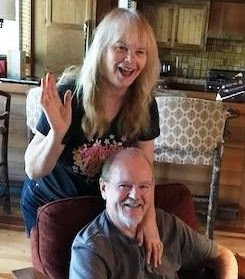Whenever I begin to feel overwhelmed in my work life, the first thing I do is organize my desk. I don’t know about you, but when my mental world is in disarray, I try to control my physical one. I can usually do this in a few minutes and it somehow settles my inner world.
For some people this is not an easy task. Their physical space is so cluttered that the thought of bringing order to it causes them to feel significant stress, even panic. For some, this inability to control their environment is an expression of their internal chaos. For others it is the result of a shopping and spending addiction. For still others it is the failure to hold boundaries with kids.
Out of control clutter is such a pervasive problem that there are Clutterers Anonymous groups all over the country. When cluttering is excessive or turns into hoarding it is usually considered a symptom of OCD (obsessive compulsive disorder) and must be dealt with clinically.
Clutterers Anonymous describes clutter as both physical and emotional:
“Clutter is anything we don't need, want, or use that takes our time, energy or space, and destroys our serenity. It can be outgrown clothes, obsolete papers, broken toys, disliked gifts, meaningless activity, ancient resentments, or unsatisfying relationships. We may be selective in some areas, but not in others. Objects may be strewn about or wedged into drawers; neatly stacked or stowed in storage.”
I have seen marriage and dating relationships break apart because of this issue. One partner cannot control this aspect of their life and the other cannot agree to live (or continue to live) in the chaos. Often there is deep shame for the sufferer and a lot of blaming going on. The cluttering can be labeled as an aspect of moral failure due to laziness or selfishness when in reality it may be a serious anxiety disorder. What is inescapable is the pain that it can cause when out of control.
If you are in doubt whether you qualify, Clutterers Anonymous has a handy self-assessment. It might make you uncomfortable or it might bring you peaceful relief, but either way it is a worthwhile check-up.
Sometimes de-cluttering is simply an act of the will, an intentionality to create serenity within one’s own environment. I can either surround myself with beauty and meaning or I can allow my world to be encroached upon by a random process (junk mail, unwanted gifts, un-thoughtful purchases, lack of self-discipline etc.)
We live in a culture of materialistic and experiential excesses. It is no surprise that this area is a challenge for so many people. My goal is to live in freedom, and that often means living in a very counter-cultural fashion. It is a constant but worthy struggle.
Hebrews 12:1 Therefore, since we are surrounded by such a huge crowd of witnesses to the life of faith, let us strip off every weight that slows us down, especially the sin that so easily trips us up. And let us run with endurance the race God has set before us.



